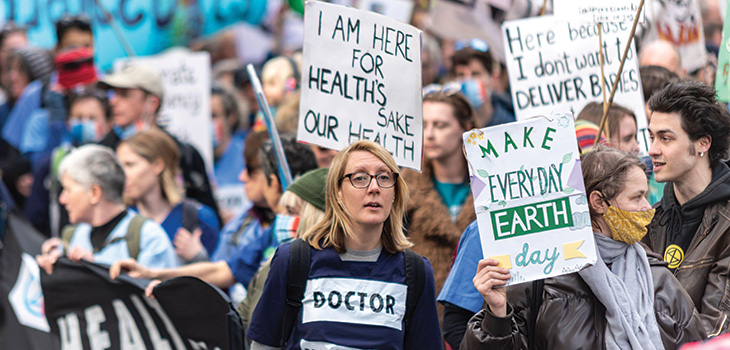
- Climate activism by healthcare professionals, including peaceful but unlawful protest, can trigger regulatory scrutiny, especially when it results in criminal convictions or findings of contempt of court.
- Regulatory responses vary. While some convictions lead to sanction, others may not even reach a tribunal.
- Protestors who express intent to continue breaking the law may face extended or escalated sanction.
The impact of climate change on health is real. For example, research published in May 2025 by Climate Central found that extreme heat, which is becoming more frequent and intense because of climate change, has had significant adverse impact on pregnant women and their babies, including a rise in preterm births.
Climate change impacts the health service: the ageing NHS estate is ill-equipped to deal with extreme weather. The record-breaking heat in summer 2022 led to cancelled operations, staff and bed shortages, and hospital overheating. It is understandable that many medical professionals,





.tmb-mov69x69.jpg?sfvrsn=c8ef63b3_1)



